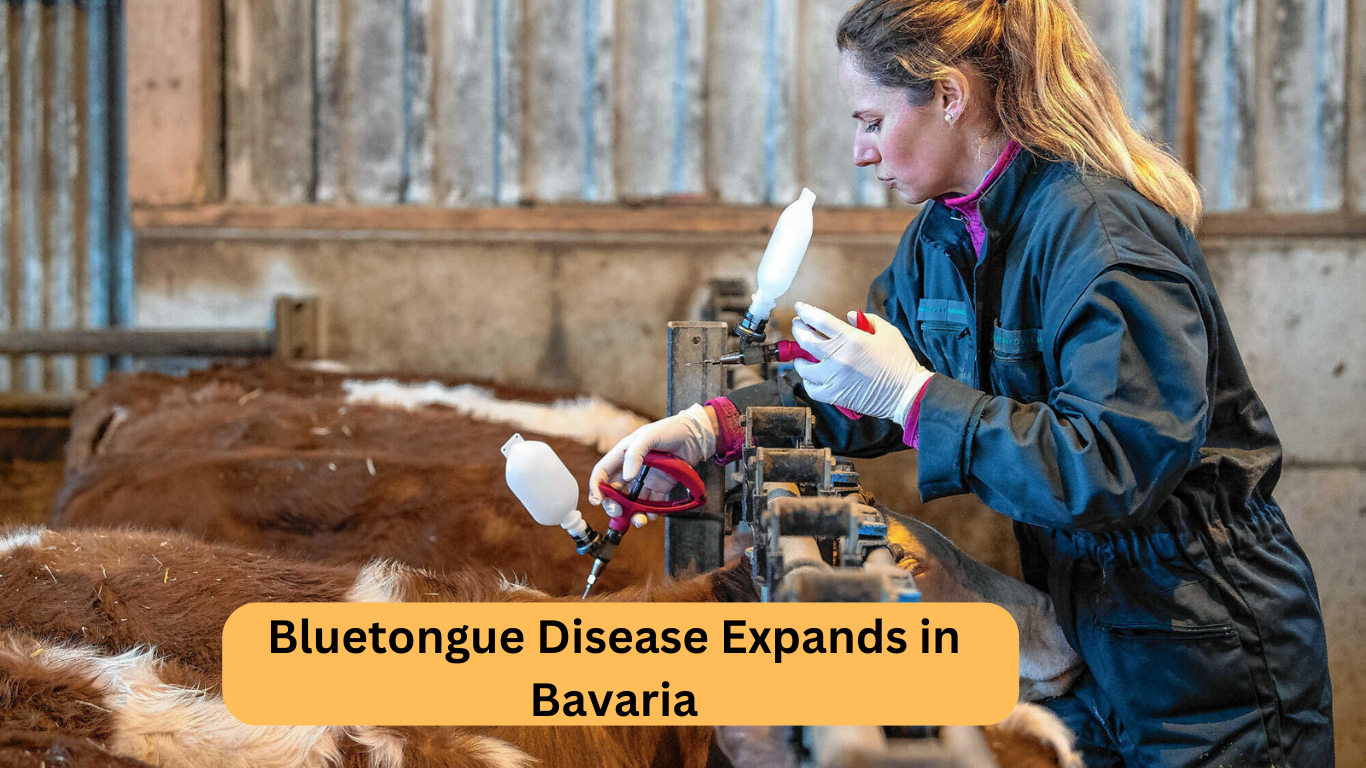
Bluetongue Disease Expands in Bavaria
Blauzungenkrankheit, or Bluetongue Disease, is increasingly becoming a concern in Bavaria. According to recent reports from BR24, the disease is spreading across the region, raising alarm among farmers, veterinarians, and local authorities. This article provides an in-depth look at the current situation, its implications, and the measures being taken to combat the disease.Bluetongue Disease Expands in Bavaria
What is Bluetongue Disease?
Bluetongue Disease is a viral infection caused by the Bluetongue virus (BTV), transmitted to animals through the bite of infected midges. This disease primarily affects ruminants such as cattle, sheep, and goats. It is characterized by a range of symptoms, including fever, swelling of the tongue and lips, and lesions around the mouth. While it does not affect humans directly, it can significantly impact livestock health and productivity.
Symptoms and Diagnosis
- Fever: Affected animals often exhibit a high fever.
- Swelling: Swelling, especially around the tongue and lips, is common.
- Lesions: Ulcers and sores in the mouth and nose are typical symptoms.
- Lethargy: Animals may become lethargic and lose appetite.
Recent Developments in Bavaria
Recent reports indicate that Bluetongue Disease is spreading across Bavaria, posing a significant challenge to the region’s livestock industry. The spread of the disease has been particularly concerning given its impact on animal health and agricultural productivity.
Current Status
- Geographic Spread: The disease is expanding in several areas of Bavaria, with reports of new cases emerging in various districts.
- Infection Rates: The infection rates have been increasing, prompting urgent responses from local authorities and veterinary services.
Impact on Livestock Farming
The spread of Bluetongue Disease in Bavaria has serious implications for livestock farming:
Economic Impact
- Productivity Loss: Infected animals may experience reduced milk production, lower growth rates, and decreased reproductive performance.
- Treatment Costs: The costs associated with treating infected animals and managing outbreaks can be substantial for farmers.
Market Disruptions
- Trade Restrictions: Outbreaks of Bluetongue Disease can lead to trade restrictions, affecting the sale and movement of livestock and livestock products.
- Consumer Confidence: Market disruptions and trade limitations may impact consumer confidence and demand for livestock products.
Prevention and Control Measures
To manage the spread of Bluetongue Disease, several measures are being implemented across Bavaria:
Vaccination Programs
- Vaccination: Vaccination is a crucial strategy in controlling Bluetongue Disease. Authorities are encouraging farmers to vaccinate their livestock to protect them from infection.
- Vaccination Clinics: Local veterinary services are organizing vaccination clinics and providing guidance on vaccination schedules.
Vector Control
- Insect Management: Controlling the midges that transmit the disease is essential. Measures include using insect repellents and reducing breeding sites such as standing water.
- Monitoring: Regular monitoring of midge populations helps in assessing the risk and implementing effective control measures.
Biosecurity Practices
- Farm Management: Implementing strict biosecurity practices on farms, such as controlling animal movement and maintaining cleanliness, helps prevent the spread of the disease.
- Isolation of Infected Animals: Isolating infected animals and limiting their contact with healthy livestock is crucial in managing outbreaks.
Government and Local Response
Local authorities and government agencies are actively involved in addressing the spread of Bluetongue Disease:
Surveillance and Reporting
- Surveillance: Ongoing surveillance is critical for tracking the disease’s spread and identifying new cases promptly.
- Reporting: Farmers and veterinarians are encouraged to report suspected cases to local authorities to ensure timely intervention.
Support for Farmers
- Advisory Services: Veterinary advisory services are available to provide guidance on managing Bluetongue Disease and implementing effective control measures.
- Financial Assistance: Financial support and assistance programs are being offered to help farmers cope with the economic impact of the disease.
Looking Ahead
The situation regarding Bluetongue Disease in Bavaria requires continued vigilance and proactive measures:
Ongoing Monitoring
- Disease Trends: Monitoring trends in the spread of Bluetongue Disease will be essential for adapting control measures and preventing further outbreaks.
- Research and Development: Research into better vaccines and treatment options will play a key role in managing the disease in the future.
Community Engagement
- Farmer Education: Educating farmers about Bluetongue Disease and best practices for prevention and control is vital for managing the disease effectively.
- Public Awareness: Raising public awareness about the disease and its impact on livestock can help garner support for ongoing control efforts.
Conclusion
Blauzungenkrankheit (Bluetongue Disease) is spreading across Bavaria, presenting significant challenges for livestock farmers and local authorities. With the disease’s impact on animal health, productivity, and market stability, it is crucial to implement effective prevention and control measures. Vaccination, vector control, and biosecurity practices are key strategies in managing the disease. As Bavaria continues to address the spread of Bluetongue Disease, ongoing monitoring, research, and community engagement will be essential for safeguarding livestock and supporting the region’s agricultural sector.



